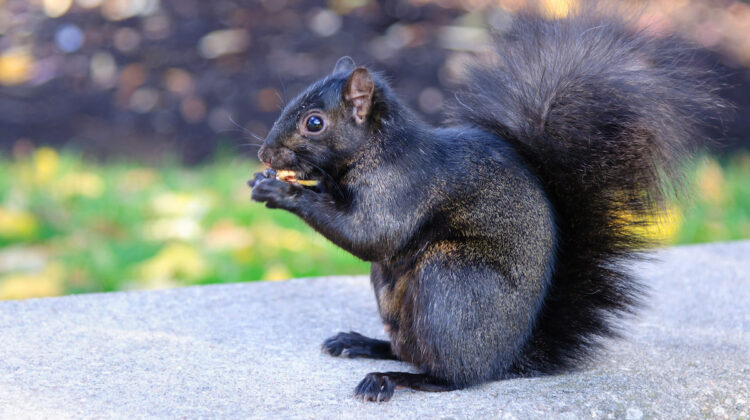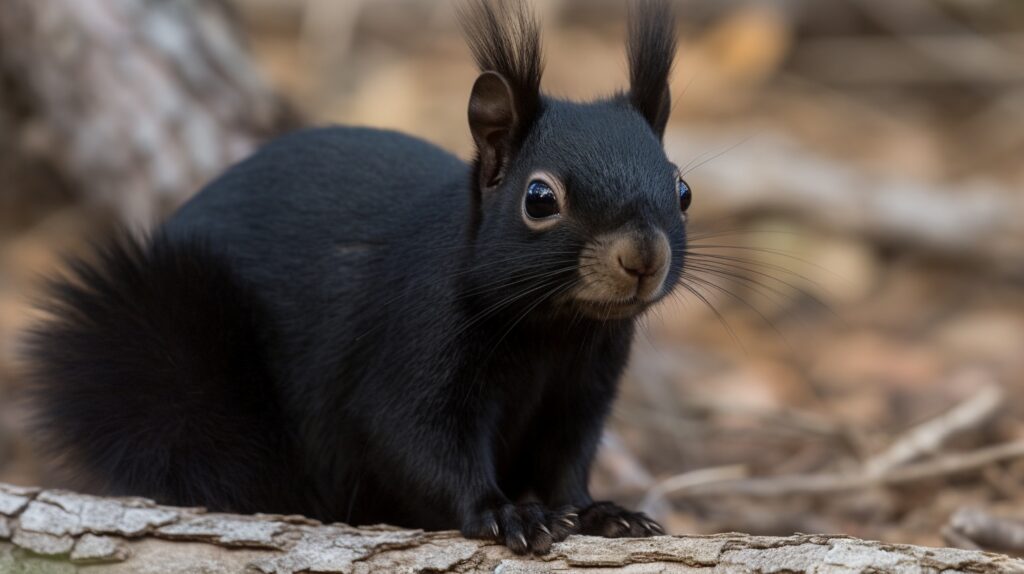
Have you ever encountered a black squirrel in the wild? While they might seem like an anomaly among their more common brown or gray counterparts, there’s a fascinating scientific explanation behind their unique appearance. In this article, we’ll delve into the world of melanism, the genetic mutation that gives rise to these captivating creatures.
The Science Behind Black Squirrels
Melanism, a condition where an organism produces excessive melanin, is responsible for the dark pigmentation of black squirrels. Melanin is a pigment that determines the color of skin, hair, and fur. In the case of squirrels, this genetic mutation results in a coat that absorbs more sunlight, providing potential benefits in certain environments.
Advantages of Being Black
- Camouflage: In areas with dark-colored trees or rocks, black squirrels might have a camouflage advantage over lighter-colored individuals, making them less visible to predators.
- Heat Absorption: Black fur absorbs more heat from the sun than lighter-colored fur, which can be beneficial in colder climates or during winter months.
- Nutrient Absorption: Some studies suggest that darker fur might aid in the absorption of nutrients from sunlight, although more research is needed to confirm this theory.

Rarity and Conservation
Black squirrels are relatively rare compared to their brown or gray counterparts. The frequency of melanism varies between different squirrel populations and can be influenced by factors such as geographic location, habitat conditions, and genetic diversity. It’s essential to conserve these unique creatures and their habitats to ensure their continued survival.
The mystery of black squirrels is a captivating example of nature’s genetic diversity. By understanding the science behind melanism, we gain a deeper appreciation for these fascinating creatures and their role in the ecosystem. As we continue to explore the wonders of the natural world, it’s important to protect and preserve species like black squirrels for future generations to enjoy.

Interesting info on black squirrels and well I had one few years back she stills comes for peanuts and well now all her off spring do the same and few grey and red thanks for info and well there all part of the family now .